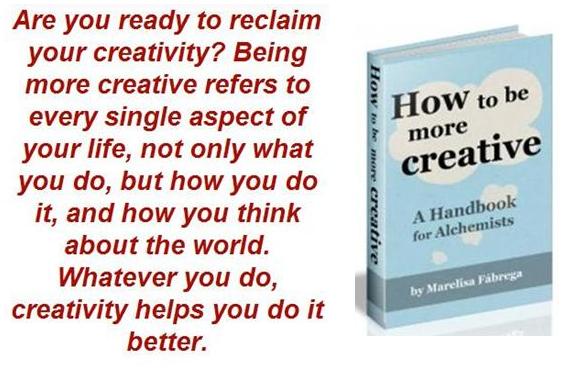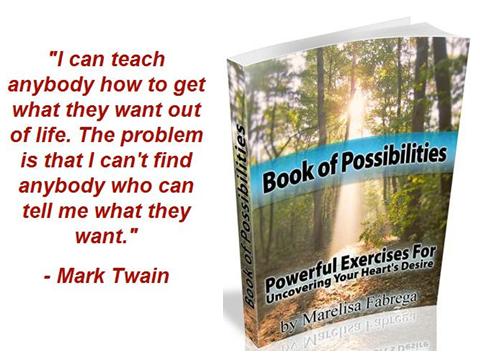
You have two options: you can live a shorter life with more years of disability, or you can live a longer life with fewer years of disability. The choice is yours.
There are changes you can make to your lifestyle that will help you to both extend your life and improve the quality of your “golden years”. Below you’ll discover 17 ways to slow down aging and live longer.
 1. Get a New Perspective on Aging. Instead of thinking of getting older as an inevitable decline, think of it as gaining knowledge and wisdom.
1. Get a New Perspective on Aging. Instead of thinking of getting older as an inevitable decline, think of it as gaining knowledge and wisdom.
Studies show that those who have a positive view of getting older look and feel younger than people of the same age who view aging as something negative. In addition, those who feel younger than their age have less cognitive decline.
 2. Eat Low Fat Greek Yogurt. If you don’t get enough calcium in your diet, the body steals some from your bones. This may compromise bone strength and put you at a higher risk of osteoporosis.
2. Eat Low Fat Greek Yogurt. If you don’t get enough calcium in your diet, the body steals some from your bones. This may compromise bone strength and put you at a higher risk of osteoporosis.
The Institute of Medicine recommends that adults 19 years old and older get 1,000 mg of calcium per day, with an upper limit of 2,000 mg. One 8-ounce cup of Greek yogurt has 415 mg of calcium, almost half of the recommended daily amount.
 3. Take Up Meditation. Dean Ornish, M.D., author of “The Spectrum”, explains that telomeres—the caps at the end of chromosomes that keep DNA strands from unraveling–shorten with stress. Ultimately this means that chronic stress can shorten your life from 9 to 17 years.
3. Take Up Meditation. Dean Ornish, M.D., author of “The Spectrum”, explains that telomeres—the caps at the end of chromosomes that keep DNA strands from unraveling–shorten with stress. Ultimately this means that chronic stress can shorten your life from 9 to 17 years.
However, the damage caused by stress to the telomeres can be reversed by finding effective ways to release stress. In addition, one of the best ways to release stress is through meditation.
 4. Always Wear Sunscreen. Dr. Wendy Roberts, a board certified dermatopathologist, explains that wearing sunscreen slows down the development of wrinkled, premature aging skin. In fact, up to 90 per cent of aging is caused by external factors, the big one being sun exposure.
4. Always Wear Sunscreen. Dr. Wendy Roberts, a board certified dermatopathologist, explains that wearing sunscreen slows down the development of wrinkled, premature aging skin. In fact, up to 90 per cent of aging is caused by external factors, the big one being sun exposure.
Choose a sunscreen that has broad spectrum protection against both UVB and UVA rays.
 5. Wear Sunglasses. In addition to protecting your skin from the harmful effects of the sun, you also need to protect your eyes. You want to keep ultraviolet light from getting into your eyes and onto the lids and the skin around them.
5. Wear Sunglasses. In addition to protecting your skin from the harmful effects of the sun, you also need to protect your eyes. You want to keep ultraviolet light from getting into your eyes and onto the lids and the skin around them.
Long-term, excess UV exposure can cause a variety of eye problems, including cataracts and age-related macular degeneration, a leading cause of vision loss among people age 50 and older. Make sure that the sunglasses you choose block out 99 to 100 percent of both UVA and UVB radiation.
 6. Stimulate Your Brain. A study published in the journal Neurology confirms that people who habitually read, write, and otherwise process information are less likely to experience mental declines late in life. Mental stimulation is extremely valuable in slowing down cognitive decline.
6. Stimulate Your Brain. A study published in the journal Neurology confirms that people who habitually read, write, and otherwise process information are less likely to experience mental declines late in life. Mental stimulation is extremely valuable in slowing down cognitive decline.
 7. Get Regular Aerobic Exercise. People who are active have a lower risk of heart disease, stroke, type 2 diabetes, some cancers, depression and dementia. Aim to do at least 150 minutes, 2 hours and 30 minutes, of moderate-intensity aerobic activity every week.
7. Get Regular Aerobic Exercise. People who are active have a lower risk of heart disease, stroke, type 2 diabetes, some cancers, depression and dementia. Aim to do at least 150 minutes, 2 hours and 30 minutes, of moderate-intensity aerobic activity every week.
Going for a brisk thirty-minute walk, five days a week is a great way to ensure that you can continue to carry out the activities you enjoy as you get older.
 8. Start a Weight Training Program. One unfortunate aspect of aging is the loss of muscle tissue and strength. However, it’s possible to slow down the aging process by improving strength. In addition, studies show that increasing your strength also makes your genes younger.
8. Start a Weight Training Program. One unfortunate aspect of aging is the loss of muscle tissue and strength. However, it’s possible to slow down the aging process by improving strength. In addition, studies show that increasing your strength also makes your genes younger.
 9. Hang Out With Friends and Family. Relationships play a key role in health and life expectancy. Social relationships don’t just improve the quality of our lives, but also the length of it.
9. Hang Out With Friends and Family. Relationships play a key role in health and life expectancy. Social relationships don’t just improve the quality of our lives, but also the length of it.
A study found that strong social ties can be as important as losing weight if you’re obese; getting active if you’re sedentary; and giving up cigarettes if you’re a smoker. One of the best things to do if you want to live longer is to strengthen your ties with others.
 10. Get Married. Marriage brings better mental and physical health and reduces the chances of premature death by 15%. Research shows that married people lead healthier lifestyles. In addition, marriage reduces anxiety and the risk of depression.
10. Get Married. Marriage brings better mental and physical health and reduces the chances of premature death by 15%. Research shows that married people lead healthier lifestyles. In addition, marriage reduces anxiety and the risk of depression.
Of course, it has to be a loving and supportive marriage in order for it to be beneficial to your health and longevity.
 11. Volunteer. Researchers have studied the psychosocial benefits of volunteering. They found that volunteers live longer than non-volunteers. In fact, volunteering appears to reduce risk of death by 25 percent.
11. Volunteer. Researchers have studied the psychosocial benefits of volunteering. They found that volunteers live longer than non-volunteers. In fact, volunteering appears to reduce risk of death by 25 percent.
Some theories as to why this is so include the following: helping others leads to feelings of perceived usefulness and competence, as well as providing social integration and support. In addition, when helping others, hormones such as oxytocin and progesterone are released; these hormones regulate stress.
 12. Treat Yourself to Dark Chocolate. Dark chocolate can boost blood circulation in your brain, lower blood pressure and inhibit stroke damage. Be sure the cocoa content is at least 70 percent, and eat at least half an ounce of dark chocolate a day. Like anything else in life, it’s also important not to overdo it.
12. Treat Yourself to Dark Chocolate. Dark chocolate can boost blood circulation in your brain, lower blood pressure and inhibit stroke damage. Be sure the cocoa content is at least 70 percent, and eat at least half an ounce of dark chocolate a day. Like anything else in life, it’s also important not to overdo it.
 13. Get Seven Hours of Sleep. Research has shown that, when it comes to sleep, seven is the magic number. A study of more than 30,000 adults found that heart attacks and stroke are twice as high among those sleeping less than five hours a day, compared with those getting seven hours.
13. Get Seven Hours of Sleep. Research has shown that, when it comes to sleep, seven is the magic number. A study of more than 30,000 adults found that heart attacks and stroke are twice as high among those sleeping less than five hours a day, compared with those getting seven hours.
Those who slept nine hours or more also had a markedly increased risk.
 14. Get a Pet. Studies have shown that having a pet has a myriad of health benefits. First, having pets helps lower our stress levels and decrease blood pressure. Pets also improve our mood and boost our immunity. In addition, having a pet significantly decreases a person’s chances of dying from heart disease. All of this translates into a longer lifespan.
14. Get a Pet. Studies have shown that having a pet has a myriad of health benefits. First, having pets helps lower our stress levels and decrease blood pressure. Pets also improve our mood and boost our immunity. In addition, having a pet significantly decreases a person’s chances of dying from heart disease. All of this translates into a longer lifespan.
 15. Be conscientious. Research has found a correlation between conscientiousness and lower blood pressure, lower rates of diabetes and stroke, and fewer joint problems. For one, people with conscientious personalities are less likely to engage in harmful behaviors–such as smoking and risky driving–and more likely to adhere to healthful ones.
15. Be conscientious. Research has found a correlation between conscientiousness and lower blood pressure, lower rates of diabetes and stroke, and fewer joint problems. For one, people with conscientious personalities are less likely to engage in harmful behaviors–such as smoking and risky driving–and more likely to adhere to healthful ones.
Attributes of being conscientious include being organized, being disciplined, and having self-control. Things you can do in order to become more conscientious include creating a daily schedule and sticking to it, being more punctual, and organizing your desk every day before leaving work.
 16. Have a Purpose. Research published in Psychological Science shows that at any age, having a sense of purpose could add years to your life. In fact, purposefulness has been found to be one of the strongest predictors of longevity. Therefore, if you want to live longer, set meaningful goals. In particular, set an overarching goal for what you want to achieve during your lifetime.
16. Have a Purpose. Research published in Psychological Science shows that at any age, having a sense of purpose could add years to your life. In fact, purposefulness has been found to be one of the strongest predictors of longevity. Therefore, if you want to live longer, set meaningful goals. In particular, set an overarching goal for what you want to achieve during your lifetime.
 17. Eat to 80% of Fullness. The residents of the island of Okinawa in Japan are known for their longevity. One of the secrets to their long lifespans is a practice they call hara hachi bu — eating only until you are 80 percent full. Here are four ways to practice hara hachi bu:
17. Eat to 80% of Fullness. The residents of the island of Okinawa in Japan are known for their longevity. One of the secrets to their long lifespans is a practice they call hara hachi bu — eating only until you are 80 percent full. Here are four ways to practice hara hachi bu:
- Eat until you’re satisfied but not yet full.
- Eat slowly in order to give your body time to send you cues about fullness.
- Use smaller plates.
- Err on the side of eating less than you think you need; if you still feel hungry twenty minutes later, you can always go back for more.
Conclusion
Experts estimate that about 10% of your longevity is determined by your genes. The other 90% is in your hands. Follow the tips above in order to live longer, and live better.



Related Posts:
- How to Take Back Control of Your Life
- 20 Ways to Boost and Replenish Your Energy
- Ten Strategies for Overcoming the Negativity Bias and Increasing Your Quality of Life
- Five Ways to Make Friends and Get Along With Others
Did you enjoy this article? Subscribe to “Daring to Live Fully” by RSS or by email, and get free updates.








 Marelisa Fabrega is a lawyer and entrepreneur. She holds a Bachelor of Science in Business Administration from Georgetown University in Washington, D.C., as well as a Juris Doctor from the Georgetown University Law Center. You can learn more about her
Marelisa Fabrega is a lawyer and entrepreneur. She holds a Bachelor of Science in Business Administration from Georgetown University in Washington, D.C., as well as a Juris Doctor from the Georgetown University Law Center. You can learn more about her 






Comments on this entry are closed.
You always have great stuff Marelisa. Of course, I’m not doing any yogurt, and I certainly don’t need sunscreen, but the rest of these… pretty good. I’m still trying to figure out #16; don’t have lots of years to keep postulating on it though. 🙂